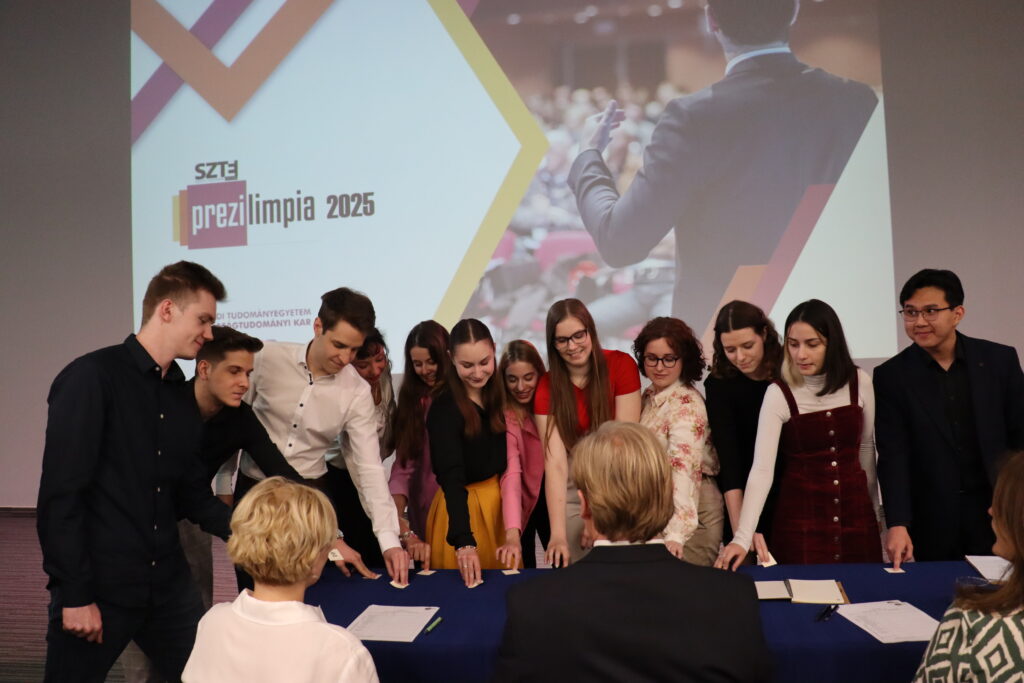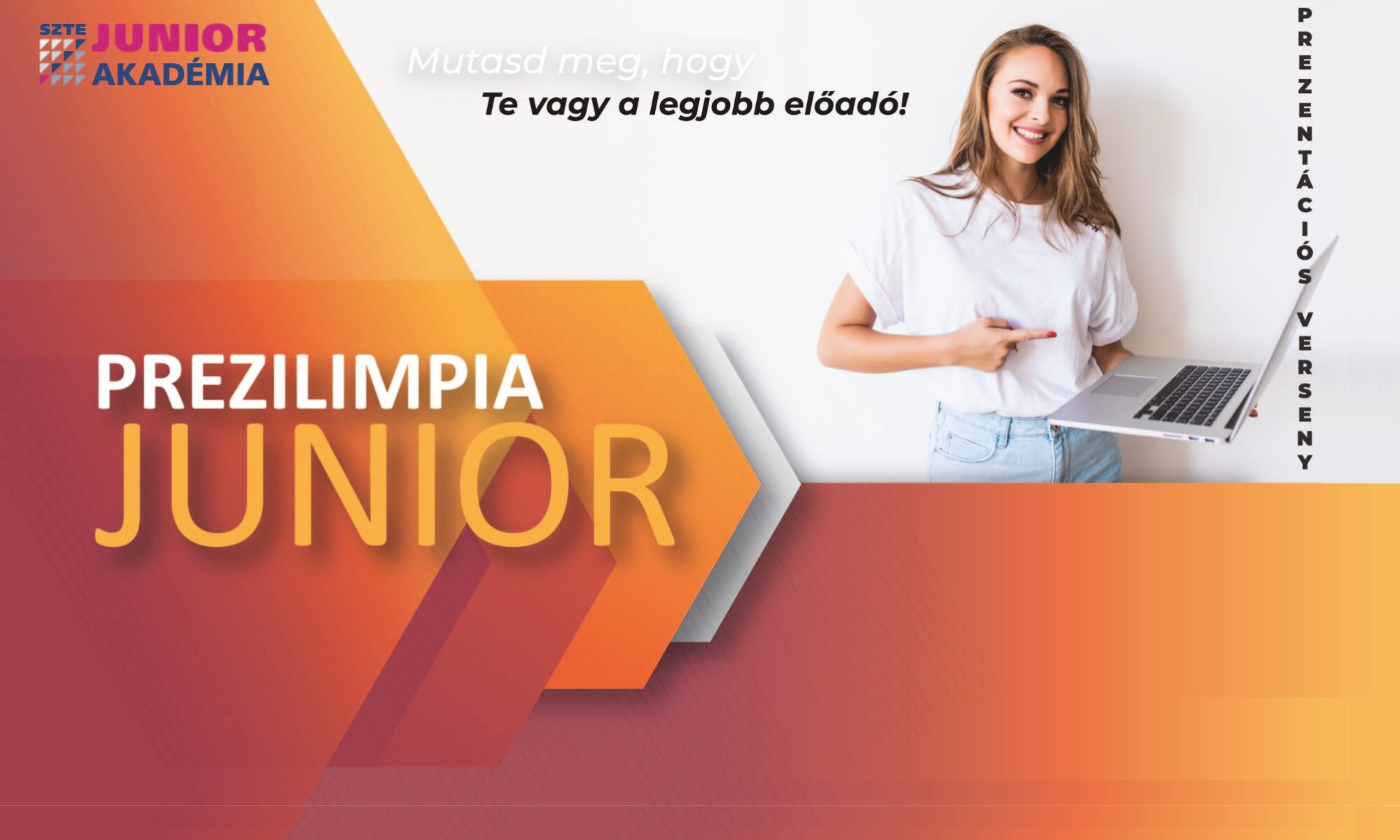SZTE-Prezilimpia 2025
The official results of the SZTE-Prezilimpia 2025 Final held in Szeged on May 8th:
Presentation competition:
I. place: Colin John
(University of Szeged – Faculty of Economics – BAM)
II. place: Tímea Lilla Urr
(University of Szeged – Faculty of Engineering)
III. place: Kende Juhász
(Corvinus University of Budapest)
Special Prize Winners:
Nóra Laura Máté
(University of Szeged – Faculty of Natural Sciences and Informatics)
Gyula Bence Nagy
(University of Szeged – Albert Szent-Györgyi Faculty of Medicine)
Gina Katalin Fánczi
(University of Szeged – Faculty of Humanities and Social Sciences)
Presentation karaoke:
I. place: Gyula Bence Nagy
(University of Szeged – Albert Szent-Györgyi Faculty of Medicine)
II. place: Kende Juhász
(Corvinus University of Budapest)
III. place: Bianka Tóth
(Budapest University of Economics – Faculty of Commerce, Hospitality and Tourism)
Special Prize Winner:
Colin John
(University of Szeged – Faculty of Economics – BAM)
The audience chose Urr Tímea Lilla (University of Szeged – Faculty of Engineering) as the most popular speaker.
The following students successfully participated in the final:
Emese Zsófia Csetri
(University of Szeged – Gyula Juhász Faculty of Teacher Training)
Kíra Horváth
(Budapest University of Economics – Faculty of Foreign Trade)
Csanád Medgyesi
(University of Szeged – Faculty of Political Science and Law)
Fanni Siklós
(University of Szeged – Faculty of Health Sciences and Social Education)
Eszter Tory
(Budapest Metropolitan University)

The contestants of the SZTE-Prezilimpia 2025 Final shuffle the order of their appearance under the supervision of the jury
Topic: Digital security and AI: Protection or threat?
In today’s world, it is unimaginable to live without digital tools and activities. The economy, healthcare, education, and science—both societal groups and individuals—utilize, demand, and create vast amounts of data. These data guide our daily decisions and learning processes. Recently, not only humans but also machines have been using our data for learning and decision-making, as the use of artificial intelligence (AI) spreads rapidly across the globe.
Are we equally enthusiastic about generating new data and protecting existing ones?
How concerned are we about basing our decisions on false or inaccurate data?
Do decisions made by humans and intelligent software unfold similarly? When can more accurate, better, and more “human” decisions be made? How do judges, doctors, and engineers make judgments based on digital data? Who can reliably monitor our data and its authenticity? In this century, the security of information equates to the security of our person and personality. Is the growth of data sets and their use by AI a threat or an additional opportunity? In work, education, research—across all aspects of life—we must find the right answers.
